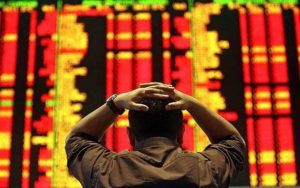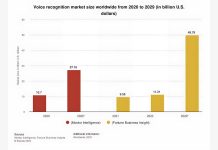Amidst a larger market decline in the first week of February, spooking investors riding the nine-year bull run, some point to enterprise software companies as safe haven investments within the volatile tech space.
On Monday, February’s losses cost the market a whopping $1 trillion, with tech stocks as some of the hardest hit. After a slight rebound on Tuesday, the Nasdaq Composite index reflects a 3.9% slide over the most recent five-day period at 7,155.88.
While some investors are flocking away from tech and towards other sectors such as financials, industrials, energy and materials, the Street continues to see upside in IT software companies, particularly large cloud computing application software vendors. In a note to clients last week, analysts at Morgan Stanley highlighted providers such as Salesforce.com, ServiceNow and Workday among those set to outperform the broader market.
The investment bank forecasted some of the leading enterprise software providers to see their market values double in four years, given that they continue to double down on growing their profit margins. While investors looking at traditional valuation metrics such as price-to-earnings ratios may find SaaS stocks expensive at current levels, the analysts noted that this leaves out the real potential in cloud-based software companies, which relies on a strong recurring revenue business.
The bank covers 32 subscription based firms which reported an average revenue growth of 30% last year. Analysts expect the group to report 40% growth in earnings before interest and taxes (EBIT), to $16 billion in EBIT from just $3 billion by 2022.
Other firms most likely to see gains include Proofpoint, RealPage and Veeva Systems, wrote Morgan Stanley, highlighting various upside drivers such as improving sales and marketing efficiency, spreading R&D investments and a rise in subscription renewal rates from enterprise customers. These factors are set to lift operating margins by an average of 30 points, according to the bank.
























